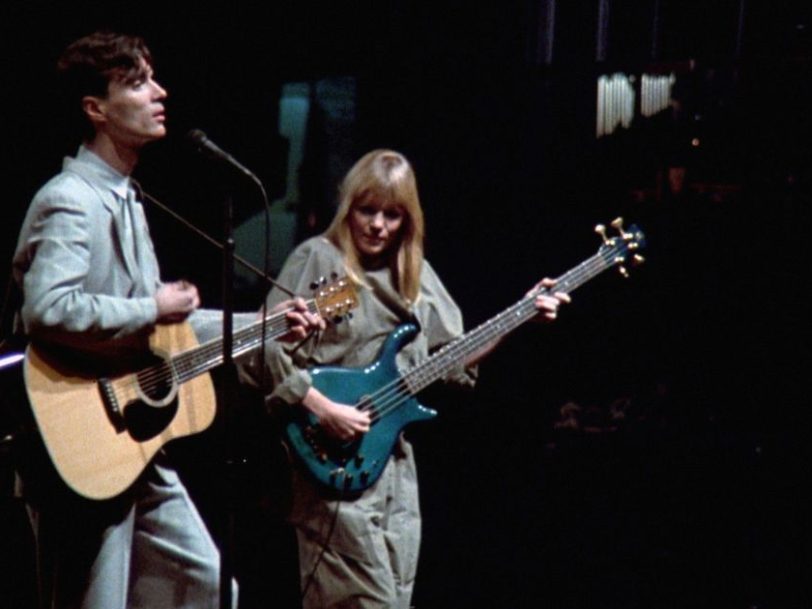In 1983, Talking Heads were on a roll. Their latest album, Speaking In Tongues, had been a runaway success buoyed by the US Top 10 hit Burning Down The House, and they were poised to embark on a tour that still ranks among the most acclaimed in rock history. Captured on the concert film Stop Making Sense, and spawning one of the best live albums of all time, the group’s live show was unlike any ever attempted before or since.
Listen to ‘Stop Making Sense’ here.
“‘Stop Making Sense’ isn’t so much a film about the band as a film about that performance”
For their tour in support of Speaking In Tongues, Talking Heads’ core line-up of David Byrne (vocals, guitar), Jerry Harrison (guitar), Tina Weymouth (bass) and Chris Frantz (drums) was supplemented by a team of crack musicians: Parliament/Funkadelic keyboardist Bernie Worrell, percussionist Steve Scales (The B-52s, Yoko Ono) and The Brothers Johnson guitarist Alex Weir, plus another P-Funk recruit, Lynne Mabry, on backing vocals, along with Ednah Holt, from The Ritchie Family.
As well as expanding the group’s line-up, Byrne exerted more control over the stage show. He insisted the band wear muted colours on stage and ensured that all the mic stands and drum kit were anodised black, so they wouldn’t reflect the stage lights. And he had some tricks up his own sleeve in terms of choreography and outfit choices, most strikingly the huge, oversized suit he’d change into towards the concert’s close. He’d acknowledge the suit’s notoriety in a 2001 interview with The Guardian, saying, “Yeah, that’s one for my tombstone. ‘Here lies David Byrne. Why the big suit?’”




